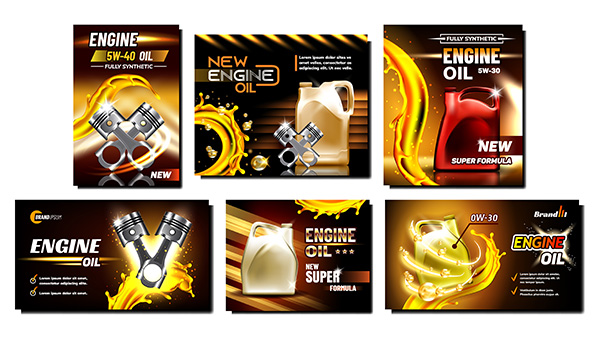
Motor oil is one of the most important fluids in your car, but not all oils are the same. Whether you're choosing between synthetic and conventional or deciding on the right viscosity, using the wrong type of oil can lead to a variety of problems—some mild, some serious. If you’ve ever poured in whatever was available without checking the specifications, you’re not alone—but it’s a habit that can catch up with your engine over time.
Let’s find out what can happen if the wrong oil ends up in your car, and why following your manufacturer’s guidelines is more important than it might seem.
What Does “Wrong Oil” Even Mean
When we say “wrong oil,” we’re usually referring to oil that doesn't match your engine’s requirements for viscosity (thickness), type (synthetic vs. conventional), or additive content. Every engine is designed to work best with a specific oil profile, and deviating from that can interfere with proper lubrication, cooling, and cleaning.
Modern engines are finely tuned machines. Even a small mismatch in oil properties can affect performance or lead to increased wear—especially over time.
Engine Performance
If your car requires a low-viscosity oil like 0W-20 and you use something thicker like 10W-40, it may not flow as easily during cold starts. This can result in sluggish performance, higher fuel consumption, or poor throttle response, especially in cold weather.
On the other hand, using oil that’s too thin may not provide enough protection under high heat or heavy load. This can lead to increased engine friction and premature wear, even if it seems to run fine in the short term.
Increased Engine Wear Over Time
One of oil’s primary roles is to reduce friction between moving parts. The wrong oil type can’t form the correct protective film on engine surfaces, which leads to metal-on-metal contact and long-term wear.
That wear might not show up immediately, but over time, you’ll notice things like valve noise, piston ring problems, or even early engine failure—particularly if the wrong oil is used consistently over multiple oil changes.
Sludge Buildup and Deposits
Different oils contain different types of additives that help keep the engine clean by suspending contaminants and preventing sludge. Using oil that lacks the right detergent or dispersant additives can cause buildup over time, clogging oil passages and leading to overheating or oil starvation.
This is especially true if you switch from synthetic to conventional oil in a turbocharged or high-performance engine that runs hotter than usual. Synthetic oils are generally better at resisting breakdown and managing heat, so downgrading to a basic conventional oil could make things worse.
Problems With Oil Consumption or Leaks
Some engines—especially those designed for synthetic oils—can start burning or leaking oil if a different type is used. Synthetic oil molecules are more consistent and resistant to breakdown. Switching to a lower-grade oil may cause it to burn off more quickly or seep through seals that synthetic oil normally keeps conditioned.
This might show up as increased oil consumption between changes or visible leaks, even if the engine seemed sealed tight before.
Voiding Manufacturer Warranties
If your car is still under warranty, using the wrong type of oil might cause more than mechanical issues—it could void your warranty coverage. Most manufacturers clearly specify which oil is required, and sticking to that recommendation is part of keeping your coverage intact.
If a major failure occurs and the oil doesn’t match the specs, your repair claim could be denied—even if the oil didn’t directly cause the failure.
What to Do If You’ve Already Used the Wrong Oil
Accidents happen. If you realize you used the wrong oil after an oil change, it’s best to drain it and replace it with the correct oil as soon as possible. The longer the wrong oil circulates through your engine, the more risk it poses to sensitive components.
Don’t wait until the next scheduled change. A quick visit to your trusted shop can help undo the mistake before it becomes expensive.
Auto Masters Repair – Expert Oil Service in Columbus, GA
Not sure which oil is right for your vehicle? Let the team at Auto Masters Repair in Columbus, GA, take the guesswork out of oil changes. We’ll make sure your engine gets exactly what it needs every time—no shortcuts, no wrong weights, and no surprises.